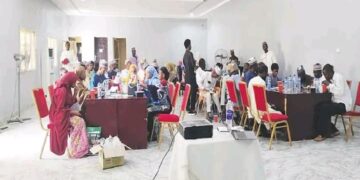On Tuesday, August 20, 2024, the Supreme Court of Nigeria announced that it has reserved judgment on two significant appeals concerning the recent gubernatorial elections in Bayelsa and Kogi States. These cases are pivotal not only for the respective states but also for the broader political landscape in Nigeria.
The first appeal pertains to the re-election of Duoye Diri, the Governor of Bayelsa State, who was declared the winner of the November 11, 2023 governorship election by the Independent National Electoral Commission (INEC). Diri, representing the Peoples Democratic Party (PDP), faced a challenge from Timipre Sylva of the All Progressives Congress (APC). Sylva contested the election results, claiming irregularities and subsequently filed a petition at the election tribunal after losing the initial dispute. Following a series of legal setbacks in both the tribunal and the Court of Appeal, Sylva escalated the matter to the Supreme Court, seeking to overturn Diri’s election.
In his legal appeal, Sylva, through his counsel Onyechi Ikpeazu (SAN), requested that the Supreme Court void the appellate court’s judgment that upheld Diri’s victory. He argued that the ruling was flawed and demanded a reconsideration of the evidence presented during the earlier hearings. Conversely, Diri’s legal representative, Chris Uche (SAN), strongly opposed Sylva’s claims, characterizing the appeal as “terrible, bad, and beyond redemption.” Uche urged the Supreme Court to dismiss the appeal on the grounds that it lacked substantive merit.
The legal representatives of INEC, led by Charles Edoshomwan, along with Tayo Oyetibo (SAN) representing the PDP, echoed Diri’s counsel, advocating for the dismissal of Sylva’s appeal. After hearing arguments from all parties involved, Justice Garba Lawal announced that the court would adjourn for judgment, with the date to be communicated to the concerned parties later.
In a related development, the Supreme Court also reserved judgment on an appeal filed by Yakubu Ajaka of the Social Democratic Party, who is challenging the election of Kogi State Governor Ahmed Ododo from the All Progressives Congress. During the proceedings, the apex court panel, led by Justice Mohammed Garba, dismissed Ajaka’s request for his case to be heard by the full panel of seven justices, a decision that reflects the court’s procedural considerations.
The outcomes of these appeals are highly anticipated, as they hold significant implications for the political dynamics in both Bayelsa and Kogi States. The Supreme Court’s forthcoming decisions will not only determine the fates of the governors involved but may also influence the strategies of political parties in future elections.
As the public awaits the Supreme Court’s rulings, the cases underscore the ongoing challenges within Nigeria’s electoral process and the importance of judicial review in ensuring that democratic principles are upheld. The legal battles highlight the critical role of the judiciary in adjudicating electoral disputes and maintaining the integrity of the electoral system.
In summary, the Supreme Court’s decision to reserve judgment on the appeals from Bayelsa and Kogi States signifies a crucial moment in Nigeria’s political landscape, with potential ramifications for governance and party dynamics in both states. The legal proceedings reflect the complexities of election disputes and the essential function of the judiciary in safeguarding democratic values.









